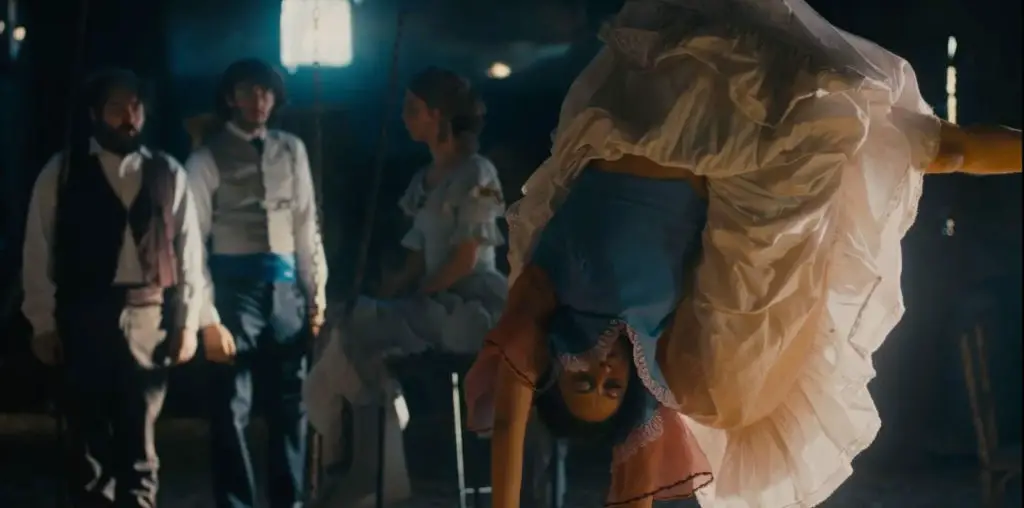
Making a film or documentary is so much work that filmmakers really need to be passionate about what their doing. It’s simpler if you film something you’re already obsessed about. You’d think Alan Berliner was then taking the really easy route by forming all three of his documentaries around the subjects of his own family and identity. However, the first two, “Intimate Stranger” about his grandfather and “Nobody’s Business” about his father, are both complex, brilliant films. Berliner’s newest is just more of the same.
This project took form because the director had a bug up his a*s about his name. Over the years he would see many references in print and elsewhere to a plethora of Alan, Allen, and Alain Berliners. He’s not even the only filmmaker with that name. French director Alain Berliner is nearly the same age and known for “Ma Vie En Rose” and last year’s less than respected Passion of Mind. Finally, Berliner decided to get it out of his system by researching the name and getting as many Al Berliners in the same room as he could. The film culminates in a New York dinner party for Alan and a dozen of his doppelgangers, including a lawyer, social worker, celebrity photographer, and the other filmmaker. Does Alan learn anything from the experience?
Actually, yes (and so do we). Ever go into a movie expecting only a light, amusing way to pass the time? Based on the premise, that’s all that I had really expected. Instead, I found a deep study into issues of identity. Most people probably aren’t even conscious of the issues they may have about their name. Do you hate or love yours? How would you react when encountering someone with your name? Would you feel competitive about it? Do you automatically feel some kind of kinship? Would you be surprise or alarmed by your common traits or distinct differences? All these questions and more go through the mind of our alpha-Alan as Berlinerpalooza fast approaches. What he finds seems to be a group of white, middle-aged (actually ages 37-67) men, all Jews or of Jewish ancestry (one is a born-again Christian). Initially at least, they all seem a little unsure how to react to this meeting of the Als. By the end, the host is a little disappointed that the evening, though pleasant, bore no earth-shattering revelations.
Smaller epiphanies are still to be found as Berliner goes beyond issue of commonality. By searching for the origins of his own name he explores what our names mean to us. Hippie names or ones that rhyme can make kids easy targets for abuse. Other monikers will denote different degrees of masculinity to which the owners are expected to live up or live down. While I worked at San Francisco’s Artists Television Access in the early 1990’s, I knew I guy there born Johnny Rock. One look and you knew he could live up to that name.
A lot of first and last names carry the connotation of a specific race, nationality, or ethnicity. In the Jewish culture, men used to take their father’s first name for their last name until European governments forced them to adopt a static family name. Many African Americans bear last names originally given to their families by white slave owners. Chinese culture places the family name first, signifying dominance of the family over the individual. Berliner even explores the stories of officials giving immigrants new names to replace the originals they couldn’t pronounce upon arriving at Ellis Island. This legend is so widely believed it appears in “The Godfather Part II”, but historians indicate that with the plentiful translators then on hand, this never really happened.
The big question posed by everything presented here is this: Do our names really define who we are, or does who we are really provide the connotation that goes with the name. Well, for most folks it’s probably a little of Column A and a little of Column B. It’s natural to feel proprietary toward our names. After all, they are our names. Maybe we have something in common with our namesakes, maybe we don’t. There are plenty of other people like you with different names, anyway. At least Alan Berliner got over it.
Now, you can’t sit through a film like this without thinking about who else might have your name, so I decided to have a look on the Web. Berliner reveals there’s even a term for searching for your own name on the Internet. It’s “egosurfing”. What did I find when I looked up “Ron Wells”? On the milder end the group contains various university professors, engineers, a golf pro and such. More noteworthy are the champion mini-stock car driver, a boxer, a San Francisco Jazz drummer, a Chicago theater actor, the author of “Girl or Boy? Choose the Sex of Your Baby”, an Australian country-western singer, the principal of New York City’s Martin Luther King Jr. High School, the Mayor of Sunfield, Michigan, a British DJ who goes by the names Earl Grey and Jack Smooth, a guy who drove a tour bus for Soundgarden and Public Enemy, a noted Texas minister, and some guy from the Bronx convicted last year of 1st degree robbery and weapons possession. I’d like to note that I am none of these guys. With this crowd an evening of Ron Wellses probably would end only with one group getting really hammered and antagonizing the Republicans until they have to call the cops on that guy from the Bronx. It could still be mighty amusing. Berlinger took solace in the fact that of all his Berliner brethren, only he owned www.alanberliner.com. Unfortunately some real estate guy owns ronwells.com and the Texas minister has ronwells.org. However, of all of them, I’ll pull up the most entries from a search engine, so IN YOUR FACE RON WELLS!
